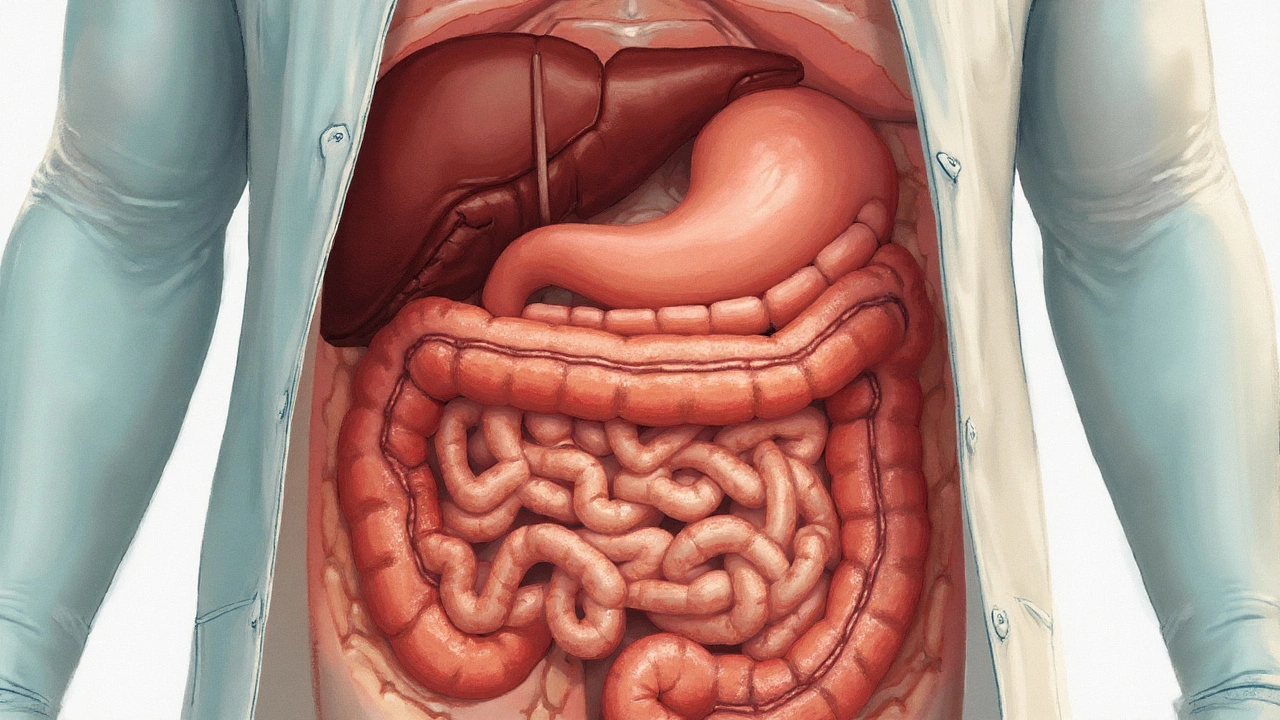If your food isn’t breaking down the way it should, you might be dealing with exocrine pancreatic insufficiency (EPI). In simple terms, EPI means the pancreas isn’t making enough enzymes to digest fats, proteins, and carbs. That can leave you feeling bloated, tired, and craving high‑calorie snacks without gaining weight.
People with cystic fibrosis, chronic pancreatitis, or even long‑term diabetes are the ones who run into EPI most often. But the condition isn’t exclusive to those groups—anyone with repeated pancreas inflammation or surgery can develop it.
Typical symptoms include frequent, oily stools (called steatorrhea), unexplained weight loss, abdominal cramps, and a feeling of fullness after a small meal. You might also notice gas, nausea, or vitamin deficiencies, especially vitamins A, D, E, and K, because they need fat to be absorbed.
The root cause is usually a drop in pancreatic enzyme production. Chronic alcohol use, gallstones, or autoimmune attacks can damage the pancreatic tissue. In some cases, genetics play a role, such as in hereditary pancreatitis.
Doctors diagnose EPI with a combination of stool tests, blood vitamin levels, and imaging studies like an MRI or CT scan. The most direct test is a fecal elastase‑1 measurement, which checks how much enzyme is passing through the gut.
The cornerstone of treatment is pancreatic enzyme replacement therapy (PERT). You take capsules that contain lipase, amylase, and protease right before meals. Start with the dose your doctor suggests and adjust based on how your stools look and how you feel.
Eating smaller, more frequent meals can help. Pair high‑fat foods with a higher enzyme dose, and try to spread protein throughout the day instead of loading it all at once. Simple swaps—like using low‑fat dairy or lean meats—reduce the enzyme load while still giving you the nutrients you need.
Because EPI can cause vitamin deficiencies, a daily supplement of fat‑soluble vitamins (A, D, E, K) is usually recommended. Your doctor may check blood levels every few months to fine‑tune the dosage.
Avoid smoking and limit alcohol, as both can worsen pancreatic damage. Staying hydrated and getting regular exercise also supports overall digestion and helps maintain a healthy weight.
If you have underlying conditions like cystic fibrosis, managing those alongside EPI is key. Work with a gastroenterologist and a dietitian who understand the interplay between the pancreas and nutrition.
In short, EPI is manageable once you get on the right enzyme dose, adjust your meals, and keep an eye on vitamins. Most people see a big improvement in stool consistency and energy levels within a few weeks. If symptoms persist, talk to your doctor about dose tweaks or additional tests.
Remember, you don’t have to live with uncomfortable digestion. With the right tools and a few lifestyle tweaks, you can get back to feeling normal again.

Explore how pancreatic duct blockage disrupts digestion, the signs to watch for, diagnostic tools, and effective treatments to restore gut health.